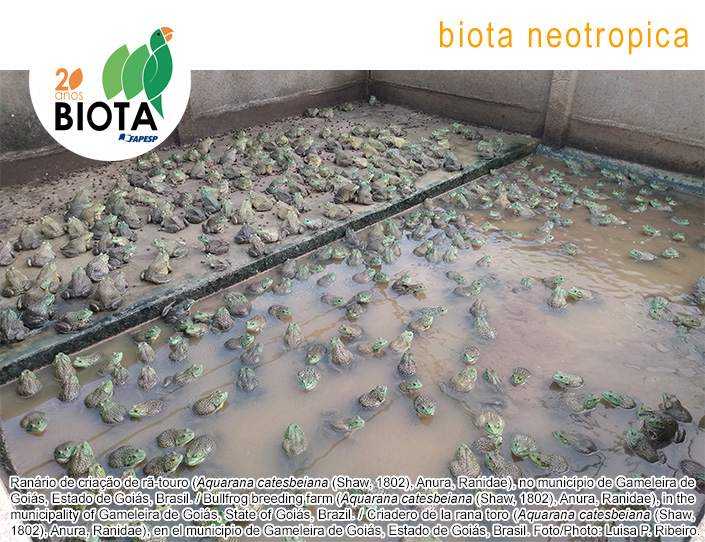Enhancing public policies for Brazilian bullfrog farming
Resumen
Abstract: Aquaculture is a globally significant industry involved in the cultivation of aquatic organisms to provide food for the population and boost the economies of producing countries. Brazil stands out in the global production of bullfrogs, but this activity has generated ecological and economic problems. The lack of regulation and control can threaten biodiversity, as these bullfrog’s act as vectors for pathogens such as chytrid fungus Batrachochytrium dendrobatidis (Bd) and the virus Ranavirus (Rv). Both Bd and Rv are associated with declines and mass extinctions of amphibians worldwide. Studies in Brazil have identified a high prevalence of these pathogens in bullfrog farms, posing threats to both the industry and the environment. The absence of effective regulation in bullfrog farming is a challenge, as chytridiomycosis and ranaviruses are diseases that must be reported to the World Organisation for Animal Health, requiring management of impacts on bullfrog production. Therefore, our goal was to promote collaboration among researchers, public entities, and industry leaders, aiming to review existing legislation and propose effective biosecurity measures. We conducted extensive reviews on bullfrog farming in Brazil, participated in and organized meetings with government and industry representatives, and actively engaged in Species Conservation Action Plans. Within this context, efforts have been made to map frog farms and develop biosecurity proposals aimed at pathogen control. We conclude that intersectoral collaboration is crucial for the development and implementation of effective policies. Furthermore, we present a detailed review of the current legislation directly related to the topic to facilitate understanding of the current situation in Brazil. The implementation and maintenance of more comprehensive regulations, along with the adoption of sustainable practices in frog farming, are essential to ensure the industry’s sustainability and biodiversity conservation.Descargas
Publicado
01/01/2025
Cómo citar
Ribeiro, L. P., & Toledo, L. F. (2025). Enhancing public policies for Brazilian bullfrog farming. Biota Neotropica, 25(1). Recuperado a partir de https://www.biotaneotropica.org.br/BN/article/view/2093
Número
Sección
Communicaciones Cortas
